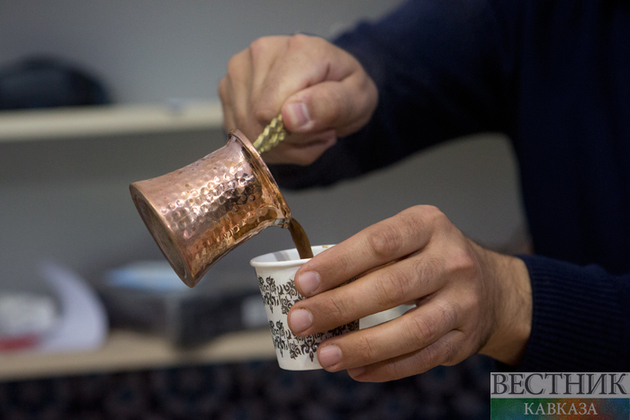Following multiple experiments since the 1980s to localize coffee cultivation, it has been shown that coffee crops can grow in Egyptian lands. Adel Abu al-Saud, head of the Horticultural Research Institute, which is affiliated with Egypt’s Ministry of Agriculture, said in a TV interview Oct. 2 that the experiments carried out by his center have proven that coffee beans can be grown in the country's climate. The move is one of the first steps toward adopting an agricultural policy aimed at expanding coffee cultivation in Egypt amid global expectations that global coffee prices would increase, Al-Monitor reports.
Climate change poses a direct threat to the global production of coffee in its originating countries in Latin America and some African countries, due to weather fluctuations including droughts, hurricanes, high temperatures and severe frosts, which may reduce existing land for coffee crops by 50% before 2050, according to a report by the Inter-American Development Bank.
Nihad Mostafa, professor at the Horticultural Research Institute, told Al-Monitor, “Climate change led to changes to the map of crops harvested in Egypt, as it enabled the cultivation of tropical crops in the country, namely coffee. Although coffee grown in Egypt may not be of the same quality as those produced in its originating country, we can still enhance the production with the ongoing experiments.”
He said, “The ongoing experiments carried out at the institute have achieved success in coffee production, and based on the current evaluation, the coffee production process in Egyptian lands can be efficient.”
Mostafa added, “The next step would be to grow coffee crops in Egypt’s governorates, and in order to do that we need to launch campaigns and raise awareness among farmers on how to deal with this crop. Also, the expected profits from its cultivation must be clearly explained, since coffee can be grown as a secondary crop that would be added to other species.”
Egypt imports 100% of its coffee needs, i.e., about 70,000 tons of raw coffee annually. Coffee imports rose during the first half of this year by 50% compared to the same period last year, despite the high prices and low supply in global markets.
While the Horticultural Research Institute celebrated the success of its growing coffee experiments, the Ministry of Agriculture did not officially announce that coffee plants will be grown and expanded to new Egyptian lands, and did not promote it among farmers by displaying the seedlings. The ministry’s stance does not go in line with the agricultural policies adopted by countries that seek to achieve agricultural sustainability of strategic crops, such as grains, vegetables and fruits, and protect their production from climate change.
Speaking to Al-Monitor on condition of anonymity, an official at the Ministry of Agriculture told Al-Monitor, “The nationalization of coffee plants in Egypt needs a comprehensive policy. We can't promote this based on the Horticultural Research Institute’s positive results, but rather after examining this experiment from all sides, especially its economic returns. This is particularly true since it is the first product of the coffee tree after years of cultivation.”
The official noted, “According to the results of the recent experiments, the current gap relating to Egypt’s coffee needs can only be covered at least 10 years from now, especially since the coffee crop needs time to respond to the reduced global production crisis. In addition, it is a new crop for Egyptian farmers, and investors are reluctant to try a new crop that may reduce the profits that they make from growing other crops.”






